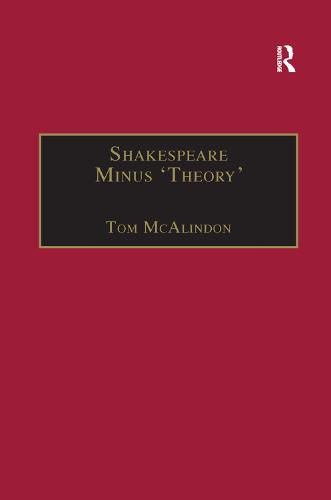Readings Newsletter
Become a Readings Member to make your shopping experience even easier.
Sign in or sign up for free!
You’re not far away from qualifying for FREE standard shipping within Australia
You’ve qualified for FREE standard shipping within Australia
The cart is loading…






Demonstrating and defending a method of close reading and historical contextualisation of Shakespeare and his contemporaries, this collection of essays by Tom McAlindon combines a number of previously published pieces with original studies. The volume includes six interpretative studies, all but one of which involve challenges to radical readings of the plays involved, including Henry V, Coriolanus, The Tempest, and Doctor Faustus. The other three essays are critiques of the claims and methods of radical, postmodernist criticism (new historicism and cultural materialism especially); they illustrate the author’s conviction that some leading scholars in the field of Renaissance literature and drama, who deserve credit for shifting attention to new areas of interest, must also be charged with responsibility for a marked decline in standards of analysis, interpretation, and argument.
Likely to provoke considerable debate, this stimulating collection is an important contribution to Shakespeare studies.
$9.00 standard shipping within Australia
FREE standard shipping within Australia for orders over $100.00
Express & International shipping calculated at checkout
Stock availability can be subject to change without notice. We recommend calling the shop or contacting our online team to check availability of low stock items. Please see our Shopping Online page for more details.
Demonstrating and defending a method of close reading and historical contextualisation of Shakespeare and his contemporaries, this collection of essays by Tom McAlindon combines a number of previously published pieces with original studies. The volume includes six interpretative studies, all but one of which involve challenges to radical readings of the plays involved, including Henry V, Coriolanus, The Tempest, and Doctor Faustus. The other three essays are critiques of the claims and methods of radical, postmodernist criticism (new historicism and cultural materialism especially); they illustrate the author’s conviction that some leading scholars in the field of Renaissance literature and drama, who deserve credit for shifting attention to new areas of interest, must also be charged with responsibility for a marked decline in standards of analysis, interpretation, and argument.
Likely to provoke considerable debate, this stimulating collection is an important contribution to Shakespeare studies.